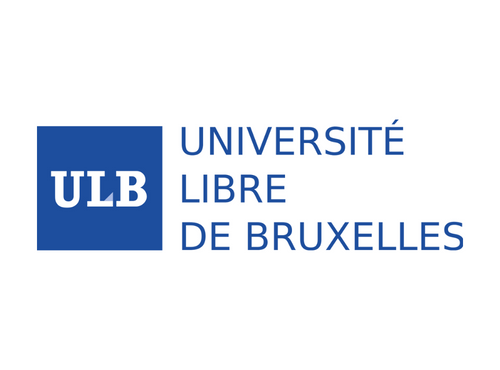
Alessandro Parente
Vice Dean for Energy Transition, Societal Impact and Industrial Relations
Aero-Thermo-Mechanics,
École polytechnique de Bruxelles, Université libre de Bruxelles

Jeanne Longlune
Student adjoint to the Vice-Dean for Energy Transition
École polytechnique de Bruxelles, Université libre de Bruxelles

Frédéric Robert
Dean
Bio, Electro And Mechanical Systems: Embedded electronics,
École polytechnique de Bruxelles, Université libre de Bruxelles

Dimitri Gilis
Vice-Dean
Biomodeling, Bioinformatics & Bioprecess – Structural Bioinformatics group,
École polytechnique de Bruxelles, Université libre de Bruxelles

Pierre Lambert
Vice-Dean for International Relations
Transfers, Interfaces and Processes ,
École polytechnique de Bruxelles, Université libre de Bruxelles

Frédéric Debaste
President of the Brussels Bioengineering School
Transfers, Interfaces and Processes ,
École polytechnique de Bruxelles and École de Bioingénerie de Bruxelles, Université libre de Bruxelles

Cédric Boey
Head of the Educational Support Office
BAPP,
École polytechnique de Bruxelles, Université libre de Bruxelles

Axel Coussement
Professor
Aero-Thermo-Mechanics,
École polytechnique de Bruxelles, Université libre de Bruxelles

Samia Ben Rajeb
Professor
Unité d'enseignement en Construction, Architecture, Urbanisme,
École polytechnique de Bruxelles, Université libre de Bruxelles

Didier Snoeck
Professor
Unité d'enseignement en Construction, Architecture, Urbanisme,
École polytechnique de Bruxelles, Université libre de Bruxelles

Benoit Haut
Professor
Transfers, Interfaces and Processes ,
École polytechnique de Bruxelles, Université libre de Bruxelles

Alexis Prickartz
Advisor
Educational Support Office ,
École polytechnique de Bruxelles, Université libre de Bruxelles

Gilles Decroly
Researcher in biomedical engineering
Bio, Electro And Mechanical Systems,
École polytechnique de Bruxelles, Université libre de Bruxelles

Louis Vande Perre
PhD Researcher in biomedical engineering
Bio, Electro And Mechanical Systems,
École polytechnique de Bruxelles, Université libre de Bruxelles

Jihad Guenaou
PhD Researcher in electrical engineering
Bio, Electro And Mechanical Systems,
École polytechnique de Bruxelles, Université libre de Bruxelles

Alessandro Piscopo
PhD Researcher in sustainable combustion and renewable synthetic fuels
Aero-Thermo-Mechanics,
École polytechnique de Bruxelles, Université libre de Bruxelles

Sabri El Amrani
Student
École polytechnique de Bruxelles, Université libre de Bruxelles

Dorian De Frenne
Student
École polytechnique de Bruxelles, Université libre de Bruxelles

Jetnis Avdijaj
PhD Researcher in heavy industry decarbonisation
Aero-Thermo-Mechanics,
École polytechnique de Bruxelles, Université libre de Bruxelles

Joëlle Vincke
PhD Researcher in heat exchangers for aircraft engines
Aero-Thermo-Mechanics,
École polytechnique de Bruxelles, Université libre de Bruxelles

Jean Servais
PhD Researcher in atomic physics
Unité de recherche en Physique quantique,
École polytechnique de Bruxelles, Université libre de Bruxelles

Lionel Delchambre
Phd Researcher in energy systems
Aero-Thermo-Mechanics,
École polytechnique de Bruxelles, Université libre de Bruxelles

Matthew Langsley
English Teacher
Ecole de Traduction et Interprétation ISTI - Cooremans (TI)





































